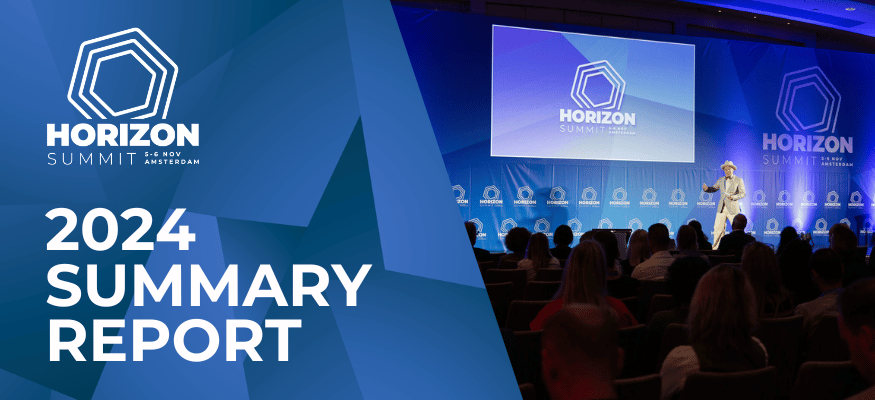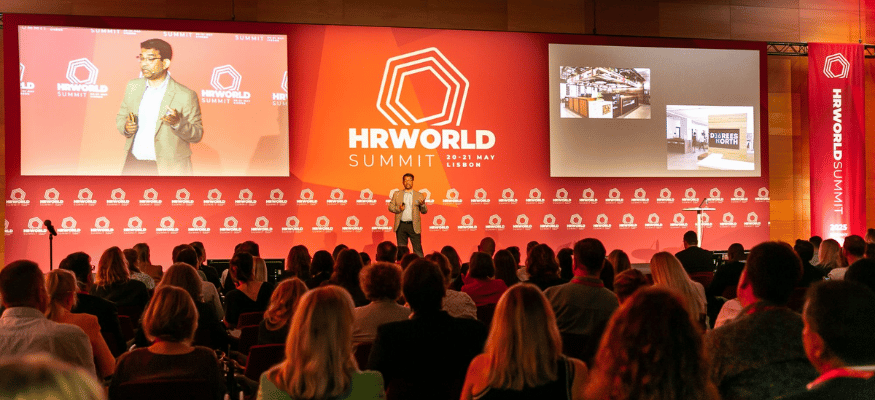Just back from Lisbon, I find myself reflecting not only on what was said, but what was truly felt, at the HR World Summit 2025. More than 500 of us gathered for two days of intense conversation, debate, provocation, and reflection. The setting was stunning, the logistics seamless—but what truly stood out was the undercurrent of urgency. Something is shifting in our profession, and everyone feels it.
It was never going to be just another conference. Not this year.
We met at a moment when societal fault lines were widening. Across the Atlantic and creeping into boardrooms elsewhere, DEI programs are being quietly shelved, rebranded, or outright eliminated. It’s happening not because the need has vanished but because the political climate has turned colder. Many organizations are now choosing safety over stance and compliance over conviction. At the same time, leadership styles once considered outliers—those built on intimidation, showmanship, and a refusal to admit fault—are becoming normalized again. We’ve seen how performative strength can masquerade as effectiveness. We’ve seen how bullying behavior if modeled from the top, doesn’t just stay in the boardroom—it trickles down through layers of management, corrodes culture, and eventually breaks people.
This is not just a crisis of leadership—it’s a crisis of conscience.
And yet, in Lisbon, I saw the opposite unfolding. CHROs, thinkers, and practitioners from every corner of the world came not to posture but to listen. Not to broadcast, but to rethink. There was a palpable willingness to confront complexity. To question not only what we’re doing—but who we’re becoming as leaders and as institutions.
Over the course of two days, a clearer picture emerged: HR is undergoing its reckoning. We are finally outgrowing the legacy of administrative management and stepping—unevenly but irreversibly—into a role of organizational conscience and design. It’s no longer enough to manage performance, run surveys, or facilitate workshops. We are being asked to help reshape systems of power, rethink how trust is built, and redesign the employee experience in a way that restores dignity, not just productivity.
If there was one unifying thread throughout the summit, it was the idea that we must now operate in systems shaped by paradox. Performance and care. Efficiency and belonging. Data and ethics. These are not trade-offs to be balanced—they are polarities to be navigated. And HR is right at the heart of it.
It was encouraging to see how seriously HR leaders take this charge. Our CHRO panels weren’t just trading best practices. They were interrogating the limits of our models, daring to admit when initiatives fail, and asking more challenging questions of themselves and their peers. Conversations about AI, for instance, didn’t focus solely on automation or HR tech stacks. They turned quickly to governance, ethics, and the long-term impact of generative tools on trust, fairness, and human judgment.
The same maturity was evident in the way we discussed DEI. No sugarcoating. No posturing. Leaders openly acknowledged that performative allyship is still prevalent and that fatigue—both political and personal—is a genuine concern. Yet, the commitment to inclusion as a moral and strategic necessity remained strong. There was deep concern about the cultural message sent when DEI roles are quietly defunded or relegated to internal comms projects. But there was also resilience. Many CHROs are doubling down, moving from corporate statements to embedded action. They’re shifting their focus from glossy dashboards to lived experiences. And they’re becoming bolder about addressing the tension between short-term optics and long-term cultural change.
It wasn’t all existential reflection, of course. The summit was rich in practice. Sessions on culture transformation gave hard-earned insights into what works—and what doesn’t—when trying to shift behaviors at scale. The word “culture” is thrown around a lot these days, but in Lisbon, we hear it reframed less as an output and more as an active process. Not what you say. Not even what you do. But what you consistently allow. That phrase echoed across panels and into hallway conversations. It’s a timely reminder that leadership isn’t just about driving results—it’s about defining what is acceptable, visible, and repeatable inside a system.
One of the most memorable discussions centered around the role of leadership character—not competency—as the defining variable in organizational performance. There is growing recognition that no amount of L&D investment can fix a toxic leadership mindset. You can’t train someone into humility or courage. You can, however, create systems that reward it. Several companies shared how they are weaving character traits into performance reviews, leadership assessments, and succession planning—not as an add-on but as a foundation.
And then, there was the human layer. The burnout, the overwhelm, the quiet quitting—not just among employees, but within HR teams themselves. This year, for the first time, there was a dedicated focus on what it means to care for the “carers.” We’ve spent the last few years designing resilience programs, flexible work schemes, and well-being apps. And yet, our teams are running on empty. The summit sessions on corporate health made clear that well-being cannot be a side project. It has to be a design principle. You can’t preach balance in a culture built on urgency. You can’t tell people to bring their whole selves to work if the system punishes vulnerability.
There were no silver bullets in Lisbon. But there was clarity.
Clarity that HR must now stop asking for permission to lead. We are at the table, whether we like it or not. And with that presence comes obligation. Obligation to hold space for uncomfortable conversations. To champion dignity in the face of efficiency. To insist on accountability not just in performance metrics but in behavior.
The world doesn’t need more statements. It requires more structural integrity. It needs leaders who understand that profit without purpose is shallow. That diversity without inclusion is decoration. That technology without ethics is simply acceleration—towards what we may not like.
In Lisbon, I saw the emergence of a community ready to meet this moment. Not with certainty, but with conviction. Not with control but with courage. These are not easy times for HR. But they are necessary ones. And they belong to those willing to move beyond HR as a function and into HR as stewardship.
As I walked out of the final session and into the soft Lisbon evening, I couldn’t help but feel a quiet resolve settle in. The conversations we had weren’t always easy. But they were real. And that, more than anything, gives me hope.
To all our speakers, partners, and attendees—thank you. You reminded me why we gather. Not to escape the chaos but to face it more effectively. Not to feel smart—but to stay human.
We look forward to seeing you in Porto next year on May 26–27, 2026. Until then, let’s continue to lead with a conscience.








